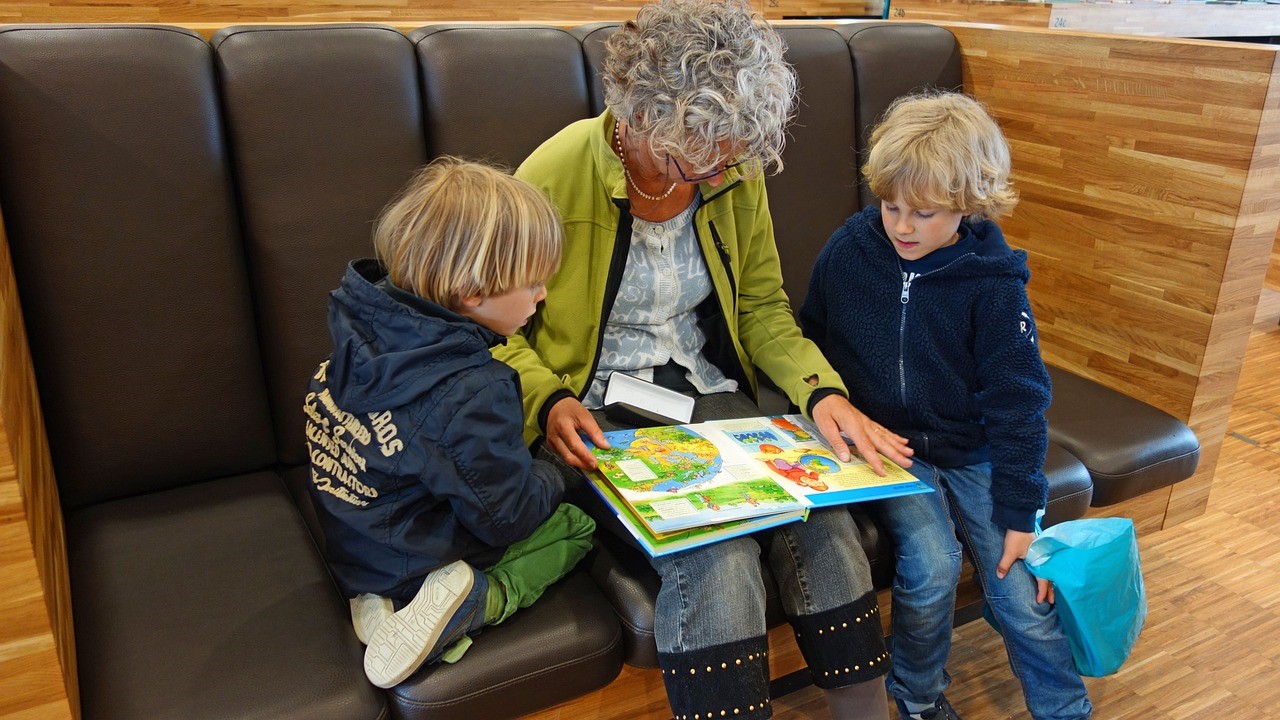However, children who experience ongoing reading struggles or fall behind their peers may have a learning disorder called dyslexia.
As a parent, it can be frustrating to know whether your child’s reading struggles are part of their learning process or a sign that they may need specialized help. In this article, you’ll learn more about dyslexia, common signs, when a child should be evaluated, and how to support and advocate for your learner.
What is dyslexia?
Dyslexia is a language-based learning disorder that makes learning to read and connect written letters to their sounds difficult. It involves differences in how the brain’s language processing areas work. It can impact reading, word recognition, spelling, writing skills, and word and sound structures.
Dyslexia is not related to a child’s intelligence or desire to learn, although it can impact learning. Dyslexia can affect people in different ways, so symptoms and severity of the condition can vary from one person to another. While children do not outgrow dyslexia, evidence-based educational interventions can help students with dyslexia learn to read.
Common signs of dyslexia
It’s estimated that every Canadian classroom has 2 to 4 children with dyslexia [1]. Unfortunately, many children’s reading struggles aren’t diagnosed until they’ve fallen behind in school. This ‘wait to see’ model often delays best practice interventions.
Recognizing the symptoms of dyslexia early allows students to get the support they need before they fall behind.
Common signs may include:
- Slow reading speed or fluency compared to peers
- Trouble using the correct words
- Difficulty with word retrieval
- Pronunciation and phonemic awareness difficulties
- Struggling with decoding words
- Difficulty understanding instructions or following sequences
- Avoiding reading or writing tasks, including reading aloud
- Trouble learning rhyming words or identifying syllables
- Struggle with sounding out new words
- Left/right difficulty
Emotional, social, and academic impacts of dyslexia
Dyslexia often affects more than a child’s reading skills. Many students with dyslexia have silently struggled for a long time before being diagnosed.
As a result, many children with dyslexia begin to question their abilities, feel they aren’t smart, or like there is something wrong with them. They also may be experiencing academic problems across subjects due to the reading challenges. These feelings and experiences can impact them emotionally, socially, and academically.
Emotional impact of dyslexia
Emotional problems can occur secondary to their learning struggles. Many children with dyslexia report experiencing frustrations, embarrassment, or shame related to their struggles with reading and writing. Some may feel like a failure or that they can’t learn. These negative emotions can impact their self-confidence and overall well-being. These experiences and feelings also put them at higher risk for mental health conditions like anxiety, depression, and low self-esteem.
Social impact of dyslexia
Children with dyslexia may also struggle socially, especially before they are diagnosed. They may be less likely to speak up in class or participate in reading and writing activities. Keeping more to themselves may lead them to feel isolated or apart from their peers.
Research suggests that about 75% of children and youths with learning disabilities have social problems including difficulties with social relationships [3]. Additionally, students with learning disabilities are also at increased risk of bullying and social isolation.
Academic impacts of dyslexia
Reading and writing are essential components to learning across subjects in school. These struggles can make it harder for them to complete tasks and learn at their full academic potential.
Many individuals with dyslexia also feel anxious about reading, especially in front of others. As a result, they may not actively participate in class, reinforcing feelings of not being smart or good enough.
Students facing reading and writing challenges are also more likely to experience frustrations in completing assignments and may feel rushed or unable to finish tasks in time. Homework can take longer to do, leaving them less free time. They also may need more help than their peers, which may make them feel stressed, anxious, or doubting themselves.
When should your child be evaluated?
Signs of dyslexia can begin to show at a young age and in early childhood. However, it’s often helpful to wait until your child is at least six years old and has had some formal reading instruction.
The Ontario Psychological Association recommends assessing for possible dyslexia as early as kindergarten [2], although the difficulties may not be as noticeable until first grade. Many children are not diagnosed with dyslexia until third grade or later. By this time, they often have already fallen behind their peers in some areas of learning.
Identifying dyslexia early allows students to get the specialized instruction, support, and accommodations they need so they can learn to read and not fall behind. So, you should request a learning evaluation as soon as you notice your child struggling with reading, especially if they are falling behind their peers or expectations based on their abilities in other areas.
How parents can support their student with dyslexia
Unfortunately, many students have been silently struggling with their reading difficulties, leaving them feeling like they aren’t as good as their peers. Understanding that a learning disability does not reflect their intellectual capacity can improve how they feel about themselves and their ability to succeed.
As a parent, you can help your child understand that dyslexia doesn’t have to hold them back from achieving their goals. Here are some ways you can support your child with dyslexia.
Academic support
- Collaborate with your child’s school and teachers to develop an individualized plan to provide accommodations and modifications that support your child’s learning needs.
- Incorporate assistive technologies and learning tools at home, such as text-to-speech software or audiobooks.
- Read to or with your child every day. Reading aloud together provides opportunities for your child to focus on comprehension without struggling to decode the text. It can also be a chance for you to bond and spend quality time together.
- If homework is regularly taking too long for your child to complete, work with your child’s teacher to find a balance that helps them get the practice they need without it being too frustrating or time-consuming.
- Discuss the supports and the actions you’re taking to ensure they have the academic accommodations they need with your child in an age-appropriate way. Keep your child involved in the process and discussions with teachers as much as possible. This step can help them feel supported and provide insights on how they can self-advocate.
Emotional support
- Point out your child’s strengths. This can help boost their confidence, build resilience skills, and ensure that not everything is focused on their reading struggles.
- Foster a growth mindset by emphasizing their effort and progress instead of focusing on outcomes. Struggling to learn to read is hard, but reassure them that with practice and education interventions, they will improve.
- Let your child know they can talk openly with you about their thoughts and feelings without worry of judgment. Listen carefully to what they’re saying, providing empathy and validating their emotions as needed.
- Work with them to develop effective coping and problem-solving strategies to help them manage challenges and stress.
- If your child is struggling with self-doubts and negative thinking, help them learn strategies to counter unhelpful thinking patterns and highlight positive experiences. You can also help by modeling realistic and positive self-talk.
- If your child’s emotional issues and struggles are impacting their life, consider seeking professional help.
Social support
- Talk with your child about dyslexia and explore with them stories of successful people with dyslexia who are thriving, including actors [4], business people, and elected officials [5].
- Encourage your child or teen to participate in extracurricular activities they enjoy to foster social connections and boost their self-esteem.
Can children with dyslexia learn to read?
Yes, children with dyslexia can learn to read and succeed at school with the right home and school support.
There are a variety of evidence-based educational interventions that can help children with dyslexia learn to read. Unfortunately, not all school districts utilize evidence based interventions, which further delays appropriate support. As a result, children fall further behind. However, it’s important for your child to be diagnosed so they receive the right strategies and tools to help them manage their dyslexia-related reading difficulties successfully.
Additionally, managing dyslexia can be confusing, emotionally frustrating, and difficult for children and parents. Many children with dyslexia are smart and driven. But over time, their reading struggles can lead to self-doubts, feelings of shame, and a belief that they are “stupid.”
Early intervention can help children understand that having dyslexia doesn’t mean they can’t learn, achieve, and thrive. They can learn that they are smart and can succeed at school. They just need a different approach to learn to read.
What parents can do if you’re concerned your child has dyslexia
If your child is struggling with reading, talk to your child’s teacher, school, or family doctor about your concerns. Your family doctor may want to first rule out any medical reasons contributing to the issue, such as hearing or vision problems.
You can get a learning evaluation through your child’s school system or through a private evaluation.
At North Shore Psychological Services, our licensed, trained experts provide a complete psychoeducational learning assessment that will address your concerns about your child’s learning difficulties, including dyslexia. Additionally, our evaluation identifies your child’s learning strengths and provides tailored recommendations so your child can reach their full learning potential.
Sources
- Dyslexia Canada. (February 28, 2022). Dyslexia Canada supports the findings and recommendations of the Ontario Human Rights Commission “Right to Read” report. https://www.newswire.ca/news-releases/dyslexia-canada-supports-the-findings-and-recommendations-of-the-ontario-human-rights-commission-right-to-read-report-880124454.html (Accessed April 2, 2024).
- Ontario Psychological Association. Guidelines for Diagnosis and Assessment of Children, Adolescents, and Adults with Learning Disabilities. https://www.psych.on.ca/OPA/media/Members/Guidelines/OPA-Guidelines-for-Diagnosis-and-Assessment-of-Learning-Disabilities-03-2020.pdf?ext=.pdf (Accessed April 2, 2024)
- Integra. (2009). A Handbook on Learning Disabilities. Toronto, ON: Author.
- Wright, Lexi Walters. 10 Oscar winners with dyslexia. https://www.understood.org/en/articles/10-oscar-winners-with-dyslexia (Accessed April 2, 2024)
- Wright, Lexi Walters. Elected officials with dyslexia. https://www.understood.org/en/articles/elected-officials-with-dyslexia (Accessed April 2, 2024)




